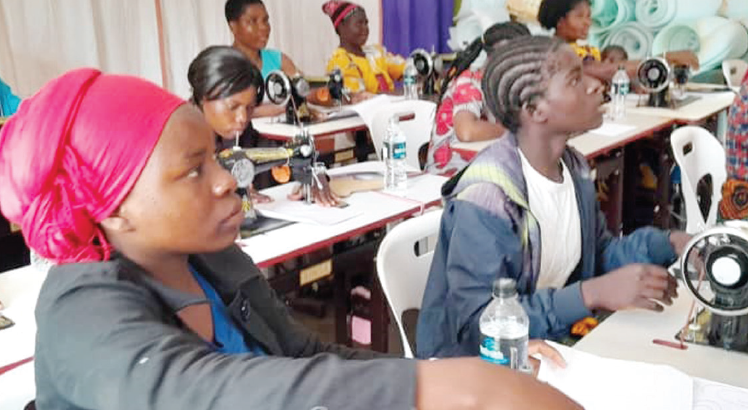Rotarians empower fistula survivors
Alifonsina Sankhulani was aged 17 when she quit school to marry.
Low grades pushed the teen girl, now 22, to elope with her long-time lover. However, the first pregnancy left her with a hole in her birth canal that leaked urine.
She lived with an obstetric fistula for three years before seeking medical assistance at Bwaila Fistula Care Centre (FCC) in Lilongwe.
The woman, from Khwathali Village, Traditional Authority Chakhaza in Dowa District, recalls being rushed to Bua Health Centre at the height of labour pains.
A clinician at the facility referred her to Kasungu District Hospital due to birth complications.
“The doctors operated on me, but I had already lost the baby,” she recounts. “After waking up, I noted that my beddings were wet and urine was leaking from my private parts.”

Sankhulani was discharged, but returned a month later for check-ups.
Caregivers referred her to Kamuzu Central Hospital in Lilongwe, but she delayed for months to source money for the hospital trip and stay.
She finally made the medical trip in 2020 and doctors diagnosed her with fistula.
They further referred her to the specialised treatment centre at the Bwaila FCC, which was closed due to the Covid-19 pandemic,” she recalls.
Sankhulani returned to the centre in April 2023. This time, doctors successfully operated on her and repaired the fistula.
She thanks her husband and family for supporting her throughout the agony that lowered her self-esteem.
“I was ashamed and lonely. I couldn’t attend community gatherings,” she says.
Sankhulani has regained her self-confidence and feels at peace following the fistula repair.
She freely mingles with her neighbours, attends public events and no longer misses church services.
Every morning, she confidently steps out of a dry bed to do farm work and buy fabrics for her tailoring shop and fashion clothes for sale.
“I happily interact with my family, friends and customers,” she says. “I feel that I am part of the community again.”
At the FCC, Sankhulani participated in several economic empowerment activities, but her favourites were cooking demonstrations and sewing classes. Last August, she received a sewing machine and starter-up materials for a tailoring business from the Rotary Club of Lilongwe-Lingadzi.
Last month, the fistula team visited Sankhulani in Dowa to monitor her progress and she disclosed making K187 800 from selling reusable sanitary pads, clothes and school bags.
She said: “I’m grateful to the FCC team for treating me and the Rotary Club for the tailoring project.
“I had no clue how I would make money and feed my family. Right now, my family has enough food because of the tailoring business. This has transformed my life. I’m no longer the same.”
Sankhulani said she used the money to buy materials for the tailoring shop, two bags of maize and a bale of tobacco for sale.
“I saved the remainder in a village bank,” she said.
The fistula survivor says the future looks bright despite a business slowdown as the growing season coincides with chronic hunger.
Most of her customers are investing more in farming activities and feeding their families than clothing.
Sankhulani and her supportive husband also spend more time in their crop fields and only return to the sewing machine during weekends. They have grown Irish potatoes, tobacco, maize and groundnuts using the proceeds of tailoring.
“I’ve taught my husband how to operate the sewing machine and we plan to buy another sewing machine which he will operate at the nearest market,” says Sankhulani.
The couple plans to build a decent house and buy livestock.
Together with her husband, Malekano Dalikeni, 26, they go village to village, encouraging fistula patients to seek treatment and men to remain supportive.
He states: “I promised to love my wife for better or for worse. Till death do us part.
“I thank the fistula care centre for repairing the leak many health facilities could not treat. With the sewing machine from the Rotarians, we no longer lack basics such as food and soap.”
The sewing project was funded by the Rotary Club of St Joseph-East in Kansas, US.
Rotary Club of Lilongwe-Lingadzi president Eveline Sibindi van Dam says the Rotarians plan to expand the project and assist more fistula survivors to start a better life.
She says: “Working with FCC is a delight as they are meticulous in their implementation and keep focus on the impact the project has on the fistula survivors.
“Alfonsina is one of the 30 survivors now living a much better life after receiving the much-needed medical care from FCC and the sewing training and machine from us.” n
Extra reporting by our Staff Writer JAMES CHAVULA





